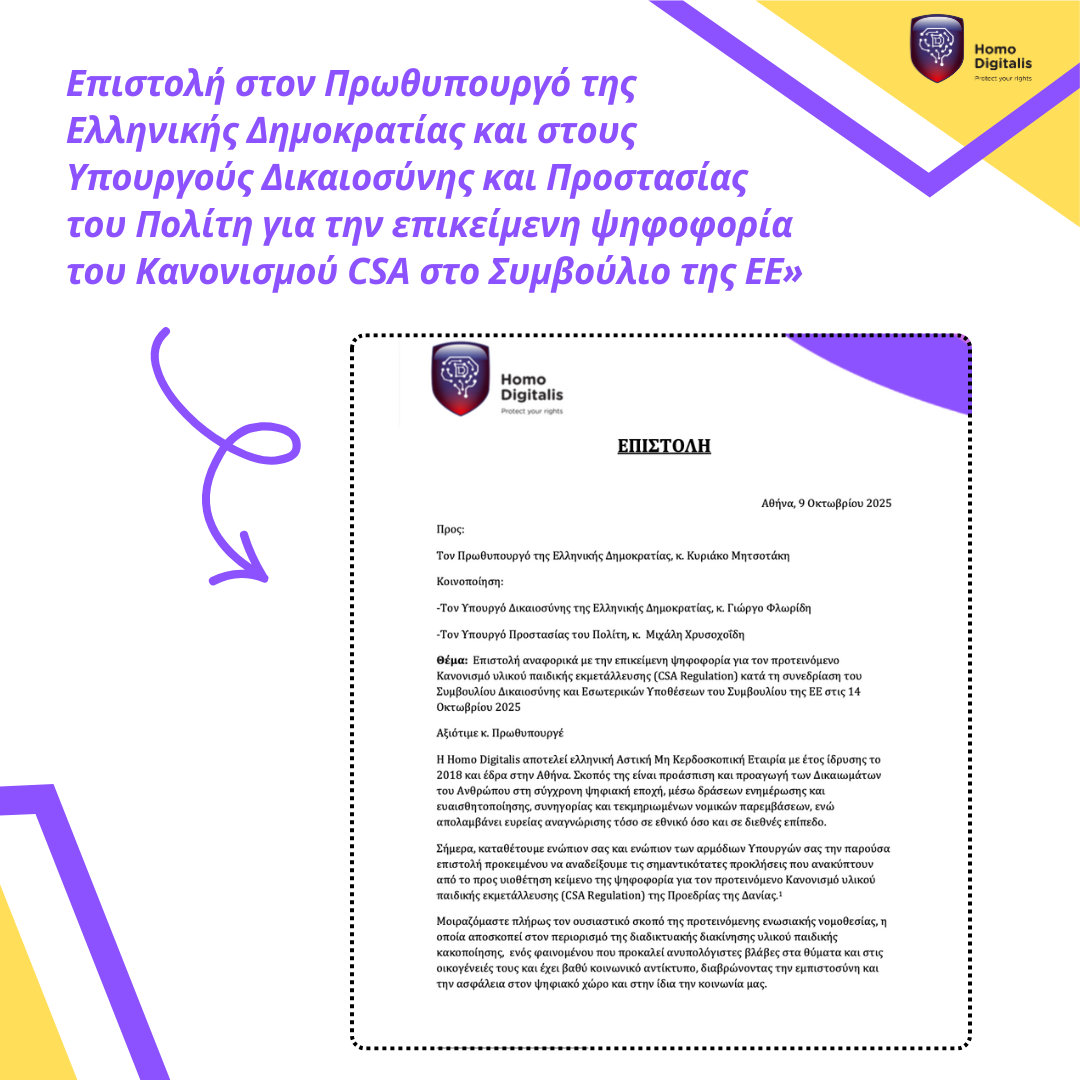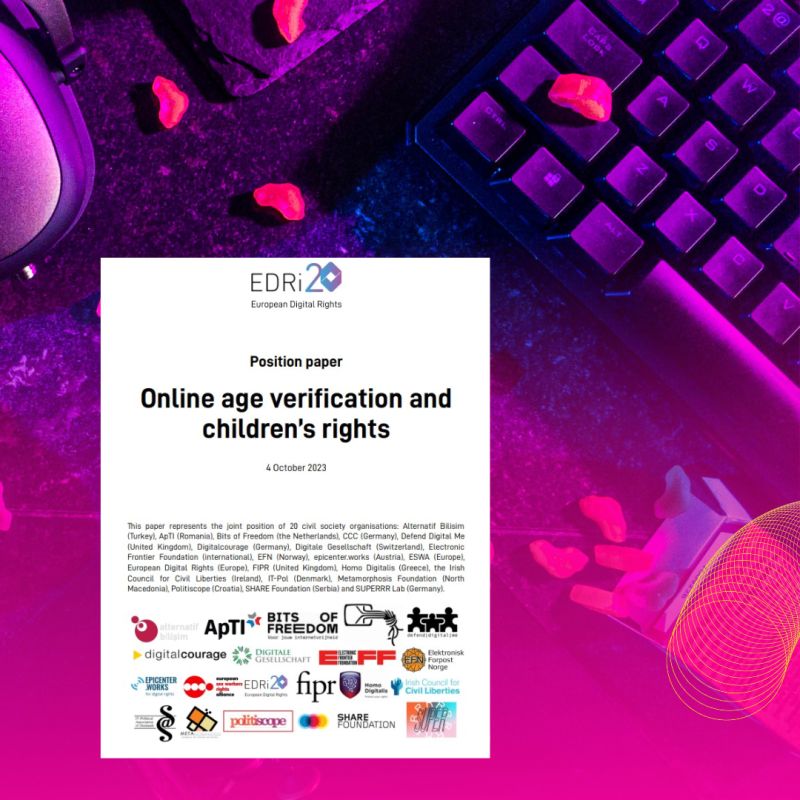We submit an Open Letter to the Prime Minister, calling on the Hellenic Republic to reject the Danish Presidency’s text on the CSA.
Homo Digitalis today submitted an Open Letter to the Prime Minister of the Hellenic Republic, Kyriakos Mitsotakis, regarding the proposed Regulation on Child Sexual Abuse Material (CSA Regulation).
In our letter — which we have also shared with the Minister of Justice and the Minister for Citizen Protection — we call on the Hellenic Republic to reject the Danish Presidency’s text in the upcoming vote at the EU Justice and Home Affairs Council on October 14, 2025.
The objective of the Regulation — to curb the distribution of child sexual abuse material — is right and necessary. However, the text proposed by the Danish Presidency would achieve the opposite effect, undermining security and trust in the digital space.
Specifically, 787 leading experts in communication security and encryption — including professors from top academic institutions in Greece — have emphasized that:
The technology for detecting child sexual abuse material is inaccurate and ineffective.
Mandatory scanning undermines end-to-end encryption and opens the door to mass surveillance.
The proposed technical measures can be easily bypassed by malicious users and threaten anonymity and freedom of information.
Real child protection comes through education and support for victims, not through mass monitoring.
On October 14, Greece’s position must be guided by knowledge, technical expertise, and the fundamental principles and values upheld by the EU Charter of Fundamental Rights and the Constitution of Greece.
You can read the full text of our open letter here.
You can also read a related article recently published on our website by our member Stergios Konstantinou here.
Learn more about Homo Digitalis’s work on this issue, including past meetings between our members — Haris Kyritsis, Haris Daftsios, Niki Georgakopoulou, Giorgos Sarris, and Angelina Barla — and Greek Members of the European Parliament, in cooperation with European Digital Rights (EDRi), here.
Homo Digitalis in Brussels for meetings with MEPs on CSAM
Last week Homo Digitalis travelled to Brussels!
There we participated in awareness raising activities with European Digital Rights regarding the proposed regulation on preventing and combating child sexual abuse (#CSAR) and met with Greek and Cypriot MEPs and their groups in the European Parliament to discuss it!
We would like to thank our members Angelina Barla, Charalambos Daftsios, Haris Kiritsis, George Sarris and Nikoleta Georgakopoulou for their excellent representation!!!
You can read more about our visit to Brussels here.
We published a joint study with EDRi on age verification online
Age verification is the process of predicting or confirming a person’s age online. Increasingly we hear from governments and technology companies that age verification is a tool we should use to ensure the safety of children online.
For example, in the EU, the draft regulation establishing rules to prevent and combat child sexual abuse (CSAR) proposes to enforce age verification forms for private messaging services (e.g. WhatsApp, Signal) and app stores operating in the EU, as well as to provide strong incentives to use this tool on all other digital platforms and services, such as social media.
The European Digital Rights network, including Homo Digitalis, has prepared a relevant study with a rich analysis of more than 30 pages, freely available here.
It is important to ensure that our children have access to age-appropriate online content. However, quick technological ‘fixes’ such as age verification online will not make a difference or really solve the complex problems we face. On the contrary, the adoption of age verification systems can have serious human rights implications, especially for the children they are intended to protect.


